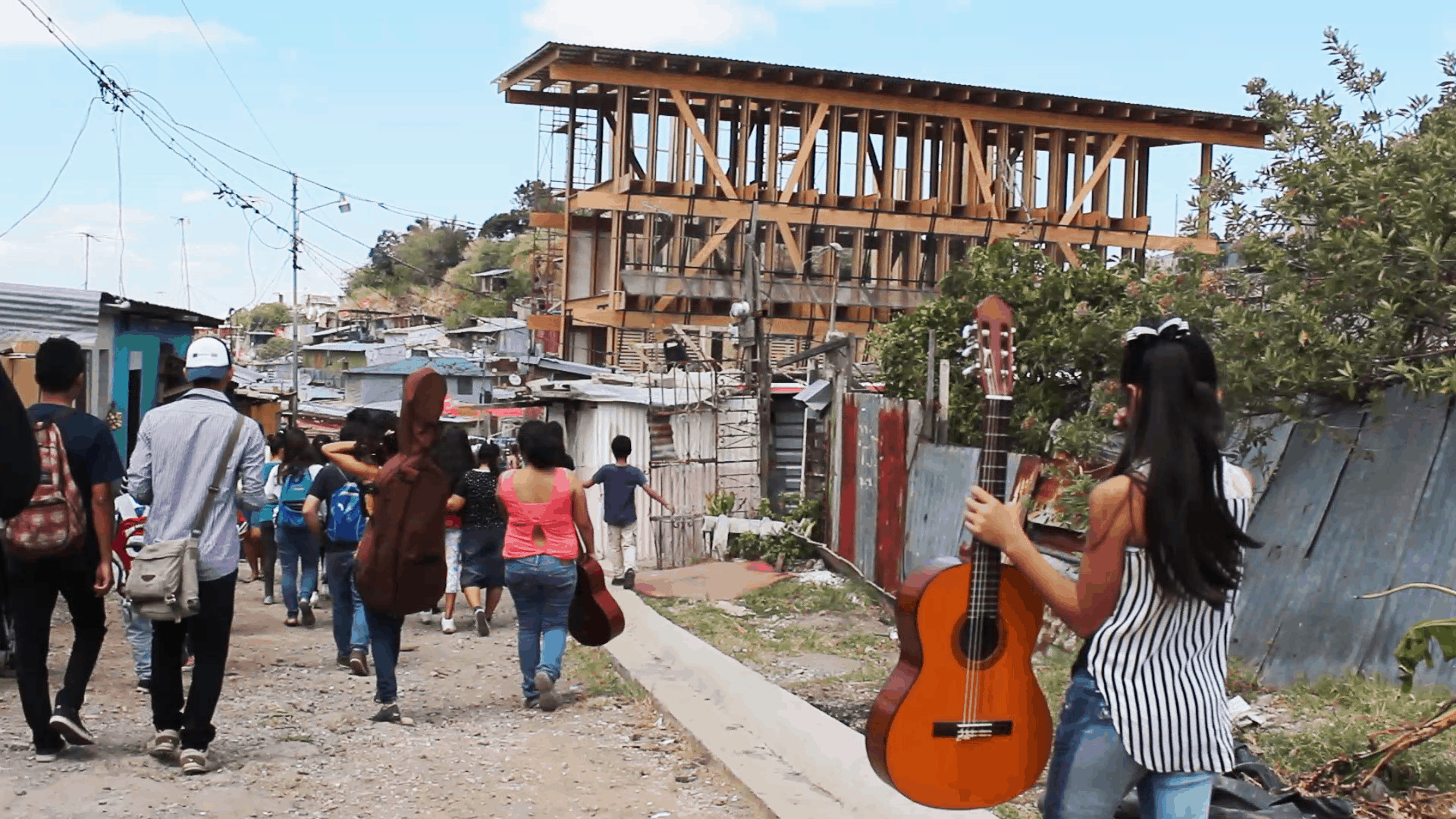La Carpio was born poor, and now it is poorer. In this neighborhood of precarious houses and narrow streets in San José, several of its inhabitants lost their jobs in the pandemic, aggravating a situation that the next president of Costa Rica will have to solve.
A leader in environmental protection and with the strongest democracy in the region, Costa Rica goes to the polls this Sunday to elect a new ruler for this country, which according to the Economic Commission for Latin America and the Caribbean (ECLAC), suffered one of the largest drops in employment in Latin America between 2019 and 2020 (-14%), along with Peru.
“I used to do house cleaning, but during the pandemic they didn’t call me anymore. My husband had an accident, a gate fell on his foot and he could no longer work. (…) I started making empanadas and selling them at construction sites. Wherever I saw a project, I started selling,” says Maricela Méndez, 30, with five children.
Together with her partner they make 100,000 colones a month ($157) and live in a two-room house with cement block walls, where drinking water comes intermittently through artesian pipes.
La Carpio, marked by crime, was born in the 1990s on the outskirts of the capital, surrounded by polluted rivers and a garbage dump. Refugees from the civil war in bordering Nicaragua arrived there. Today it occupies 63 hectares and has some 52,000 inhabitants, including migrants and poor Costa Ricans.
Sometimes we didn’t eat
The country with the highest happiness index on the continent also saw its poverty grow from 21% in 2019 to 26.2% in 2020.
Currently, that figure stands at 23%, with 6.3% in extreme poverty, according to the National Institute of Statistics and Census (INEC) and ECLAC.
According to both entities, these figures, boosted by Covid-19, have not been seen since 2008, in a country where tourism is one of its economic engines. In 2020, this fell by more than 60%, although in 2021 it began to recover.
“The pandemic complicated us too much. I asked for help in institutions and they never responded. (…) Sometimes we didn’t eat,” Maricela confesses.
Cepal assures that Costa Rica, together with Brazil, will be one of the nations that will take the longest to recover “due to the cuts in state aid”.
“We were on our way to lowering poverty below 20% for the first time in a decade, but the pandemic changed everything,” said Juan Luis Bermudez, director of the state-run Mixed Institute of Social Assistance (IMAS).
Costa Rica accumulates a debt of more than 70% of its GDP and is evaluating how to attack it. One of the alternatives is to reduce the amount of money coming out of the Government. Bermúdez denies that there will be cuts in social investment.
“State interventions have managed to contain the growth of poverty by at least four percentage points,” he said.
The issue will be left in the hands of the next governor. The center-left José María Figueres and the Social-Christian Lineth Saborío are in first and second place in the preferences, although without a large majority, which announces a second round on April 3.
No money and no work
Another economic indicator is unemployment, which closed in 2021 at 14.4%, when in the pre-pandemic (2019) it was at 12.4%. For women the statistic is worse: 17.3%.
“I was fired from my job (in a supermarket). It was a tough experience. We didn’t know what to do. We had to adjust with my husband’s salary (…). We started buying only rice, beans and meat from time to time. There was one week when we only ate eggs,” says Maura Ríos, a 41-year-old mother of two.
With the support of a local development association, she learned how to make handicrafts to sell during the pandemic, and she takes care of an elderly person.
Others are worse off
Nicaraguan Marta Arias has lived in Costa Rica for 25 years and settled in El Erizo Juan Santamaría, Alajuela, a poor neighborhood northwest of the capital, also plagued by crime, and where several houses have exposed areas or flimsy roofs. The only place of recreation for the children is a battered soccer field.
“We live here out of necessity, not because we like it. I don’t want anything given away, but I would like the opportunity of a house (…),” said Marta, a 39-year-old vendor with three daughters and a granddaughter. She has citizenship and voting rights in Costa Rica.
Neighbor of the neighborhood, Sonia Zúñiga, a 55-year-old Costa Rican mother of three, confesses that “we had to reduce a lot of things, a lot… and I had to do less things [to eat] to pay for everything that had to be paid.
But he remains optimistic. “We have to thank God that, despite the fact that we have been limited, something is coming along. Others are worse off than us.
by David GOLDBERG






